Books
Swami Vivekananda And Hero Worship
Koenraad Elst
Feb 02, 2016, 06:05 PM | Updated Feb 10, 2016, 04:49 PM IST
Save & read from anywhere!
Bookmark stories for easy access on any device or the Swarajya app.
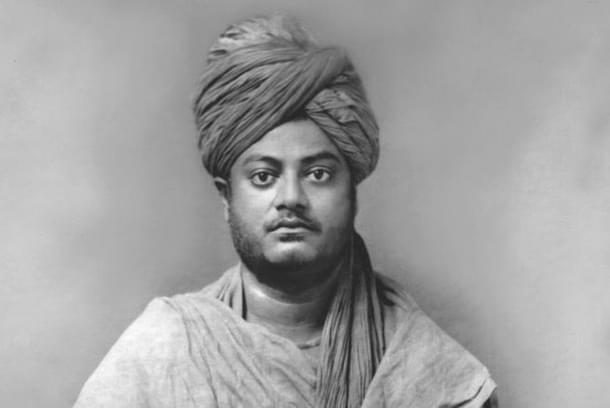
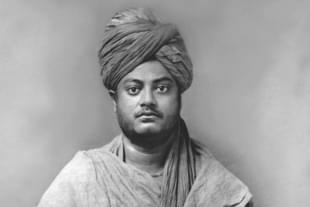
There is far too much hero-worship in Hindu nationalism, leading to a stagnation of thought because of a hyperfocus on the hero’s historical struggles and neglect of other struggles, especially the present ones.
Saurav Basu, an independent researcher with interests in history and politics, defends Swami Vivekananda against two perceived criticisms in Swarajya. He starts with me, then deals with Rajiv Malhotra. Formally, that is a bit curious, since Malhotra is older than me as well as better informed concerning Vivekananda. His book Indra’s Net mostly deals with Vivekananda whereas I have made only a few passing remarks on him. Then again, Basu only uses his rebuttal of my views as a warm-up for dealing with Malhotra’s thesis, so I guess that is fine.
I cannot speak for Mr. Malhotra, but knowing his work, I find it strange that Basu posits an opposition between Vivekananda and him. If anything, Malhotra is a great defender of Vivekananda. Some Western scholars and their Indian imitators claim that Vivekananda represents a movement called “neo-Hinduism”, which is discontinuous from historical Hinduism except in outward form, and more indebted to Christianity. Against this novel construction of the “neo-Hindu” entity, Malhotra has shown, in his book Indra’s Net, that Vivekananda was every inch a Hindu.
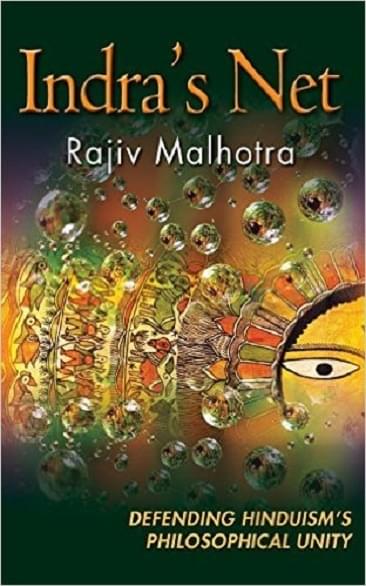
This at once solves the major problem Basu posits: did Rajiv Malhotra plagiarize Swami Vivekananda when he deduced the need for charity from Vedanta (because the Other is deemed to be of the same essence as the Self), and when he posited “historicity” as a defining trait of the Abrahamic religions as against Hinduism?
It is lawful for a scholar to trace the germs of an author’s path-breaking doctrine in earlier authors, but here Basu insinuates an antagonism between the later and the earlier author, even an attempt by the later one to obscure and conceal the influence of the earlier one. The subject deserves a more thorough treatment, but the short answer is: both authors were applying the vision of Dharma, already thousands of years old, to the challenge.
Skepticism regarding Vivekananda
Then, speaking for myself, I learn that the present writer “alleges that ‘Swami Vivekananda is over-glorified and made the patron of too many institutions….Thus, scholars of Hindu philosophy consider his knowledge…very third-rate, and his influential interpretation of Patañjali’s Yoga Sutra even harmful…’”
The opinions I cite about Vivekananda are not an “allegation” of mine, just an account of facts I observe. Many scholars, whom I don’t define as “Western” but as “not beholden to the Hindu cause”, candidly allege that Vivekananda had not been trained in the nitty-gritty of Hindu philosophy and therefore necessarily displayed some defects when trying his hand at it.
The evaluation “so third-rate” is from Robert Zydenbos, an academic with whom I have crossed swords several times (he counts me among “the scum of the earth”), but nonetheless a scrupulous scholar. From his detailed knowledge of the fine points of Hindu thought, he judges Vivekananda’s rendering of it (typically in speeches before commoner audiences) as very sketchy and unmindful of his precise sources.
On the other hand, not being a detail-oriented scholastic sometimes facilitates the larger perspective one gains when surveying a subject from the outside. And here, I can follow Basu’s quote from Sister Nivedita that Vivekananda “added to Hinduism”. An important subject, but no further treatment of it in this brief article.
The opinion that Vivekananda’s book Raja Yoga, a presentation of the Yoga Sutra, is confusing, and thus dangerous, is from Swami Agehananda Bharati. He was a German Indologist who became an ordained Hindu monk though he frequently expressed his skepticism about some traits of Hindu tradition as presently practised.
Maybe Basu doesn’t like Agehananda’s ideological position or his skin colour, but it is in keeping with scholarly practice to take his criticism of this much-read book seriously. He was fairly competent on yogic matters. And even if he is found to have been wrong, I still have a right to report that this opinion exists. Yes, there are people who consider Vivekananda’s Raja Yoga“harmful”.
Problematizing hero-worship
As for myself, in the quoted lines I have not expressed any opinion on Vivekananda’s treatment of earlier thinkers and their thoughts. The thrust of my intervention was simply to problematize the Hindu tendency of hero-worship. Just because Vivekananda played a decisive role in giving Hindus pride again in their oppressed and much-maligned civilization, many Hindus treat him as infallible. Indeed, Basu’s own article is an example of this mindset. To start defending Vivekananda against his defender Malhotra, one must make him impeccably perfect indeed.
Let us compare this with another case of hero-worship, of another Bengali recently in the news: Subhas Chandra Bose. Yes, he certainly was a hero, freely choosing the difficult life of combat, always leading from the front and sharing the lives of his soldiers. And he was a great patriot: one may disagree with his strategic choices, but he did it for the love of the Motherland. But then, so did others: the choice by VD Savarkar to throw in India’s lot with the British was equally born from a desire to serve freedom for the Motherland in the best way possible.
One great thing about India is the way it dealt with the different choices leaders had made in World War 2: whereas European countries were racked by national disunity and revenge for years after, in India the war was really over in 1945. Whatever conflicting courses had been taken, they were correctly deemed to have been different attempts, according to everyone’s own lights, to serve the Motherland. That is why Jawaharlal Nehru offered to defend Bose’s lieutenants when they were tried by the British. So, we can agree that Bose was a heroic national leader.
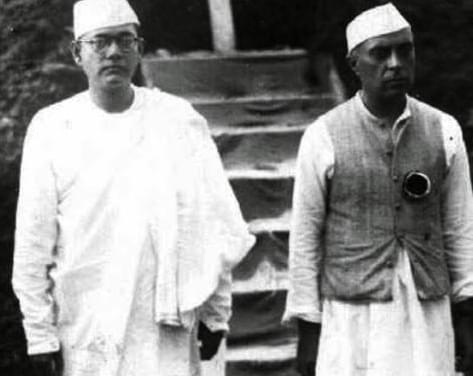
Yet, he was very fallible too. His political ideas, e.g. about India’s need for dictatorship and of synthesizing Fascism and Communism, are best forgotten. But Bose-worshippers think they have to defend all of him. There is far too much hero-worship in Hindu nationalism, leading to a stagnation of thought because of a hyperfocus on the hero’s historical struggles and neglect of other struggles, especially the present ones.
For a more consequential case of hero-worship: activists of the RSS, the self-praising “vanguard of Hindu society”, still go gaga over the memory of their movement’s founding fathers, KB Hedgewar and his successor MS Golwalkar. Though they have passed from the scene long ago, their works have never been critically analyzed even though their photographs are on display at every RSS function. RSS thought is still frozen in the pre-war years.
Even the 1960s’ addition of Deendayal Upadhyaya’s “integral humanism” wasn’t much of an addition. Though the term is unimpeachable, it probably originated in 1930s’ Europe, in Jacques Maritain’s book “Humanisme intégral”, the major source of Christian-Democracy (its central idea, very relevant both in India and Europe during the heyday of anti-religious Communism, was that “a humanism that denies man’s religious dimension, is not an integral humanism”).
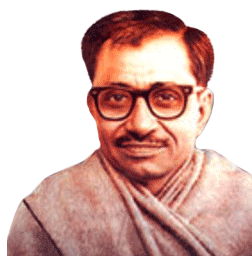
Upadhyaya’s core concept of a “national soul” goes back even farther, viz. to Johann Herder’s nationalism. So, the RSS’s “Hindu nationalism” is neither original nor very deep, and even its latest addition is already half a century old. Hedgewar’s ideas may have been useful and defensible in the interwar years, but the world has changed.
Because of hero-worship, his approach was not seen as an attempt to serve Hindu society under the circumstances then obtaining but was made the absolute focus of loyalty for succeeding generations. The result has been a wilful unfitness for operating under changing conditions, and hence decades-long impotence before the persistent de-Hinduization of India, all on the RSS’s watch.
Vivekananda’s influence
In Hindu Dharma, new ideas may develop, but they should not become an absolute yardstick. In broad outline, Dharma has been discovered and mapped well enough by generations past, and it is from them as a collective entity that we should take inspiration (what we in Europe call the mos majorum, the “ancestral ethos”), not only from some recent hero. As GWF Hegel said: The true is the whole.
Admittedly, such a counterproductive influence cannot possibly be attributed to Swami Vivekananda. The defence of his fair name, as undertaken here by Saurav Basu (as on the stereotyping of India as “spiritual”, another subject too large to go into here), is also more intricate and sophisticated.
It is true, and Basu provides the supporting quote, that Vivekananda saw Hinduism as a vast expanse stretching between the crudest and the most subtle, and that every single one of them was a genuine grasping for the divine. Yet, that vision of his has wrongly been expanded to Christianity and Islam, which are not just paths to the divine minding their own business, but also a demonization of all other paths.
And this moronic Hindu love of Christianity and Islam does partly go back to Vivekananda’s sayings like the famous “Islamic body, Vedanta brain” quote. Vivekananda could not foresee that the next generations of Hindus would degenerate to such a level of loss of the power of discrimination that they (including monks from his own Ramakrishna Mission) would start to pontificate about an illusory “equal truth of all religions”. So he never focused on that problem, and later thinkers like Ram Swarup and now Rajiv Malhotra had to take it up.
So here too, we should see successive generations of Hindu thinkers together as all emanating from Dharma, and not have this hyperfocus on a hero from the colonial period. And most certainly, we should not borrow his vantage-point to belittle a trail-blazer from the present time.
This is another drawback of hero-worship: it makes you hyperconscious of the challenges faced by Vivekananda, and blind to the rather different challenges Hinduism faces in other situations, including today – and to which Rajiv Malhotra is exploring the answers. The best way to honour the past’s Vivekananda is to support today’s Vivekananda.
“Revelation”
While we are at it, this phenomenon of hero-worship is closely akin to another trait of Hinduism: the conferral of absolute authority on the Vedas and even on more broadly defined scriptures. The Vedic seers knew very well where the Vedic hymns came from: not from divine revelation but from their own creativity and poetic skill.
That is why the Vedic hymns have the form of human worshippers addressing the gods, unlike the Quran, wherein God is made to address the man. That is why the seer Vasishtha could claim the merit for his own hymns’ power to seduce lord Indra into supporting his patron king Sudas during the Vedic Battle of the Ten Kings. But as the Vedic corpus was completed and receded into the past, its stature grew, its human origins were forgotten, and eventually it was elevated to divine status.
Therefore, many Hindus evince a tendency which Basu wrongly attributes to me:
Elst is also perhaps disturbed by Vivekananda’s emphasis on anubhava (experience) over agama (scriptural revelation) as the essence of Hindu thought, and the idea of Hinduism as a ‘scientific religion’ which emphasized empirical validation of spiritual precepts as the culmination of all sadhana.
Now, where there are yogic insights in Vedic literature, they follow from prior direct experience. To me it is obvious: of course anubhava takes precedence over agama. Some Veda loyalists claim that the goal of meditation is the realization of the “revealed” Vedic mahavakyas (“great sentences”, like “that art thou” or “I am Brahma”), but I think the mahavakyas are only the later formulaic version of the prior experience.
Patañjali thought likewise, for he explains what to do to achieve Self-realization, not which Vedic verses to read. Indeed, Shankara held it against him that he doesn’t quote the Vedas anywhere. I, therefore, disagree with Edwin Bryant, quoted with approval by Basu, that Patañjali “accepted the truth of divine revelation, agama”.
At this point, I realize that I am breaking ranks with a widespread Hindu belief. But if the choice is between the spiritual autonomy of the Vedic seers or Patañjali and the dependence on Scripture of later Hindus, I would choose the former. And so did, as Basu implicitly asserts, Swami Vivekananda.
On this count, Vivekananda was an innovator in Hindu tradition as it had become. But at the same time, he only restored the worldview of the ancients. To many Veda loyalists of his day, this vision of a Hinduism (at its best) as a “scientific religion” based upon “empirical validation” and “experience” would have sounded unorthodox. But to Patañjali, it must have seemed obvious.
Koenraad Elst (°Leuven 1959) distinguished himself early on as eager to learn and to dissent. After a few hippie years he studied at the KU Leuven, obtaining MA degrees in Sinology, Indology and Philosophy. After a research stay at Benares Hindu University he did original fieldwork for a doctorate on Hindu nationalism, which he obtained magna cum laude in 1998. As an independent researcher he earned laurels and ostracism with his findings on hot items like Islam, multiculturalism and the secular state, the roots of Indo-European, the Ayodhya temple/mosque dispute and Mahatma Gandhi's legacy. He also published on the interface of religion and politics, correlative cosmologies, the dark side of Buddhism, the reinvention of Hinduism, technical points of Indian and Chinese philosophies, various language policy issues, Maoism, the renewed relevance of Confucius in conservatism, the increasing Asian stamp on integrating world civilization, direct democracy, the defence of threatened freedoms, and the Belgian question. Regarding religion, he combines human sympathy with substantive skepticism.





